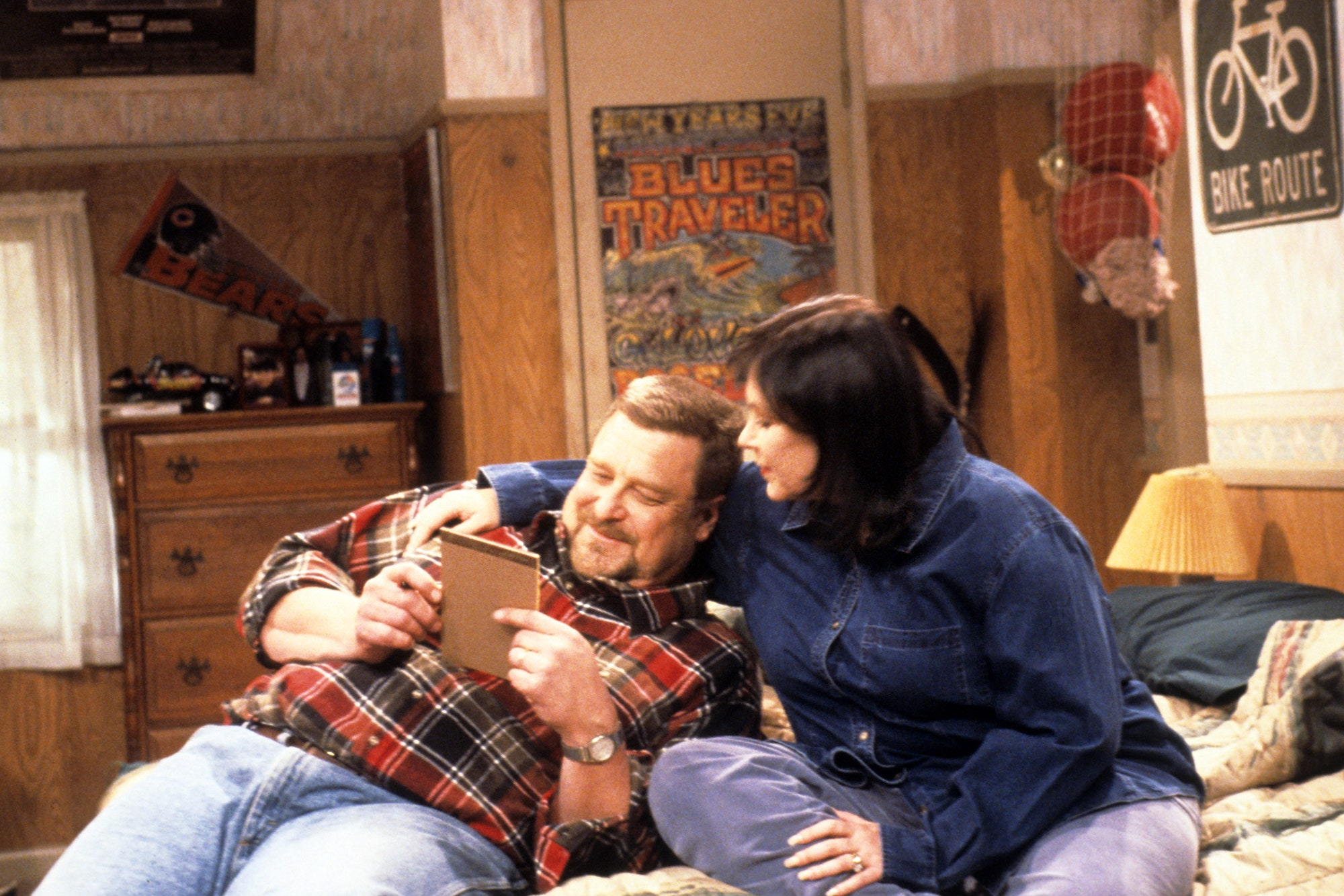
There’s something universally relatable about Roseanne. The show spoke to a generation of viewers who felt they were underrepresented on television. In a time when most sitcoms presented idealized families with perfect lives, Roseanne dared to show the reality of working-class existence—the ups, the downs, and everything in between. That raw honesty is what made Roseanne not just a sitcom, but a cultural touchstone that still resonates with fans today.
Real-Life Struggles on Screen:
The Conner family wasn’t living the American dream. They weren’t wealthy, and their house wasn’t pristine. In fact, they were just scraping by, with both Roseanne and Dan working hard to make ends meet. The financial struggles of the Conner family were a central theme of the show, resonating deeply with viewers who were experiencing similar difficulties in their own lives. For many, Roseanne became a reflection of their own struggles—a family trying to get by in a world that often made it difficult to do so.
The show wasn’t afraid to tackle issues like job loss, economic hardship, and the pressures of living paycheck to paycheck. Roseanne’s character, in particular, was relatable because she wasn’t afraid to voice her frustrations, but she also had a deep love for her family. Her constant balancing act between being a mother, wife, and breadwinner reflected the reality of many viewers’ lives.
Relatable Humor:
What made Roseanne so special wasn’t just its realistic portrayal of family struggles—it was the way the show handled these issues with humor. The show never shied away from dark moments, but it balanced these moments with humor that made them more bearable. Roseanne’s sharp sarcasm and quick wit were weapons she used to navigate the hardships in her life. Her jokes were often biting, but they came from a place of genuine frustration and love.
The humor wasn’t just for laughs—it was a way for the Conner family to cope. Roseanne and Dan’s relationship, while not perfect, was built on love, respect, and humor. They could laugh at the absurdities of their lives, making their struggles feel just a little bit easier to bear. This relatable humor made it easy for viewers to see themselves in the Conner family, making Roseanne feel like more than just a show—it felt like a part of their own lives.
Family Dynamics:
One of the most relatable aspects of Roseanne was the portrayal of family dynamics. The show didn’t sugarcoat the fact that families fight, argue, and disagree. Roseanne and Jackie often clashed, but their bond was unbreakable. Roseanne and Dan had their share of rough patches, but they always worked through them together. The children—Darlene, Becky, and DJ—each represented different phases of growing up, from teenage rebellion to the challenges of adulthood.
The show captured the complexity of family relationships in a way that few sitcoms had done before. It wasn’t about perfection—it was about love, loyalty, and the occasional conflict that makes family life so real.
Conclusion:
Roseanne succeeded because it showed the complexities of real-life struggles with humor and honesty. It portrayed a family that wasn’t perfect but was deeply relatable. For many viewers, the Conner family felt like their own—struggling, fighting, loving, and surviving. Roseanne will always hold a special place in the hearts of those who grew up with it, because it spoke to the real challenges of everyday life.
